Who's up, down and out at China's congress?
- Published
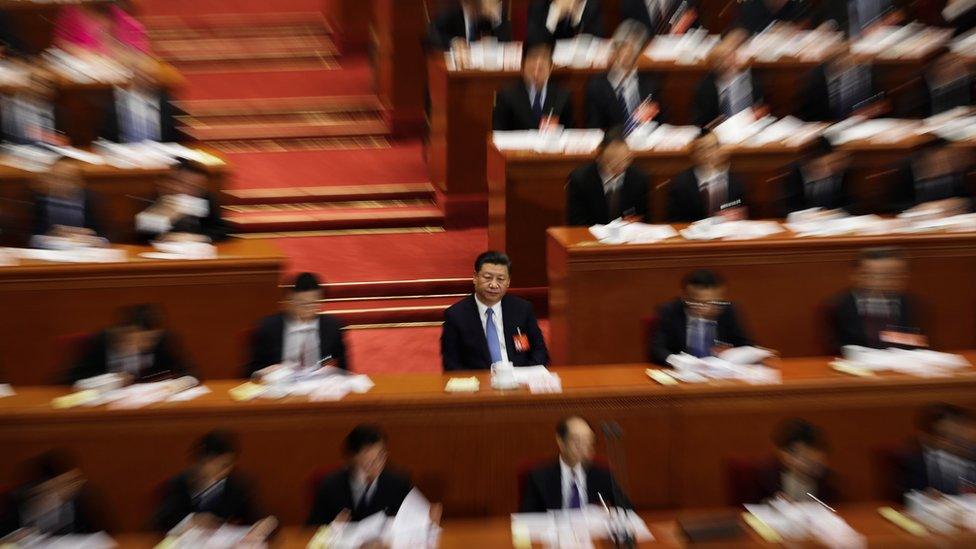
Party power is increasingly concentrated in President Xi Jinping
China's National People's Congress (NPC) is largely a rubber stamp for policy but it is still closely watched for indications of who is on the rise or on the way out in Beijing.
Up: The core, of course.
After attaining the title "core" last October, you might think President Xi had already reached the top. But no Chinese leader can sit easy on the throne, and having worked hard for a title, making everyone use it is a useful way to exact loyalty.
So for the first time this year, NPC work reports and meetings were replete with references to President Xi as the "leadership core of the Communist Party". In fact, President Xi got more name checks than any Chinese leader since Chairman Mao. President Xi is up.
Down: Hong Kong compatriots.
As the former British colony awaits the much less-than-democratic election of a new leader at the end of the month, it got a very pointed thumbs down from Beijing.
NPC Standing Committee Chairman Zhang Dejiang warned that Hong Kong's economy could be overtaken within two years by neighbouring Shenzhen, which as many Shenzhen residents themselves will proudly tell you, was little more than a fishing village only 30 years ago.
Up: The PR team.
Beijing's experimental trickle of clever animations, songs and promotional videos has turned into something stronger.
The NPC seems to be a practice round for the Communist Party congress in the autumn and has pioneered a WeChat animation which addresses users by name and almost gives the impression of genuinely answering questions.
There's also a series called "My life, my China", with passionate young party professionals explaining how they avoided being brainwashed in the West.
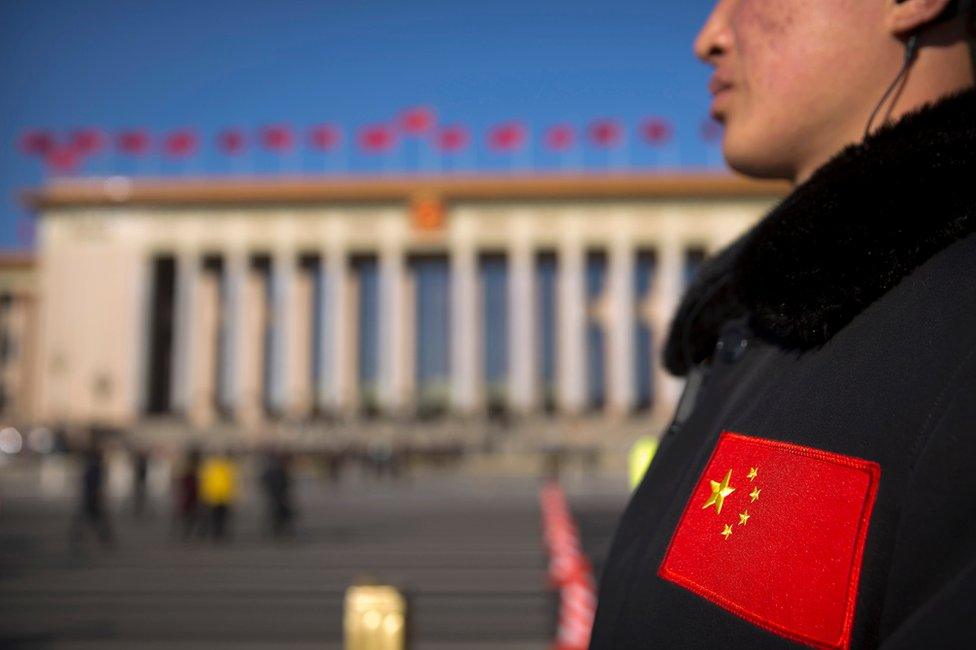
The NPC is held in Beijing's Great Hall of the People, amid tight security
Down: Tycoons on shopping trips.
In the premier's work report to the NPC, there was no direct mention of the stiff capital controls in place to prevent a dramatic depreciation of the RMB, China's currency.
But there was plenty of muttering on the sidelines of the CPPCC - that assembly of the networking great and good which adds the "consultative" to China's "consultative democracy".
Zheng Yuewen, chairman of the pharmaceutical company Creat Group, was not alone when he complained: "Foreign exchange management is so strict now that it's almost impossible to move funds out".
And with perfect theatrical timing, the $1bn (£824m) deal for Dalian Wanda to buy Hollywood's Dick Clark Productions came crashing down.
Up: The man with the red flashlight.
That's Foreign Minister Wang Yi to you and me.
This year's NPC has taken place against a swelling tide of outrage from Chinese patriots: smashing washing machines, chanting hostile slogans and refusing to get off a cruise ship on South Korean soil, all to protest against the deployment of a US anti-missile system in South Korea in the face of Chinese opposition.
Normally so quick to stamp out the first sign of protest, Beijing has only encouraged the targeting of South Korean businesses and boycotts of South Korean goods and services.
But swinging his figurative flashlight with typical poise, China's foreign minister came as peacemaker to the NPC.
In proposing a "double suspension" - North Korean nuclear and missile programmes in exchange for South Korean and US military exercises - Wang Yi said opposing sides on the Korean peninsula were like accelerating trains bearing down on each other.
"Are the two sides really ready for a head-on collision? The priority is to flash the red light and apply the brakes."
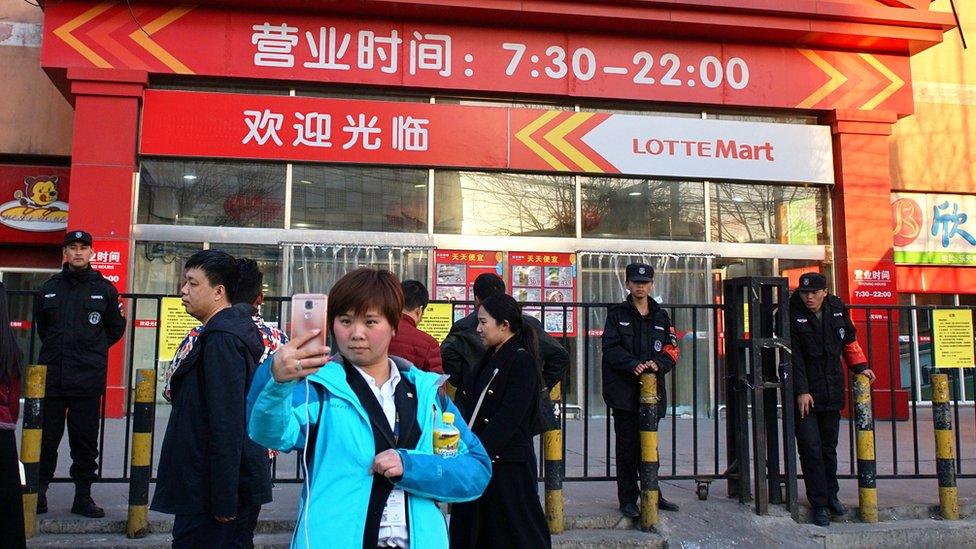
Branches of South Korean store Lotte have been closed in China in a move seen as retaliation over the missile system row
Down: The educators.
Education Minister Chen Baosheng delivered the painful public admission that although President Xi had made "important comments" on political education for students at the end of last year, problems on the ground were proving an obstacle.
"When we go and investigate at colleges and universities, attention levels at thought and political theory classes are not high. People are there in body but not in spirit."
He said crude tools and unfashionable packaging must go, but made clear the political product was still a winner. "Students must be led by the core values of Chinese socialism to ensure their healthy moral growth."
Expect to see more of those animations and interactive tools I mentioned earlier.
But who is out?
There are plenty of names one could mention here. But I'll make do with one: Bo Xilai.
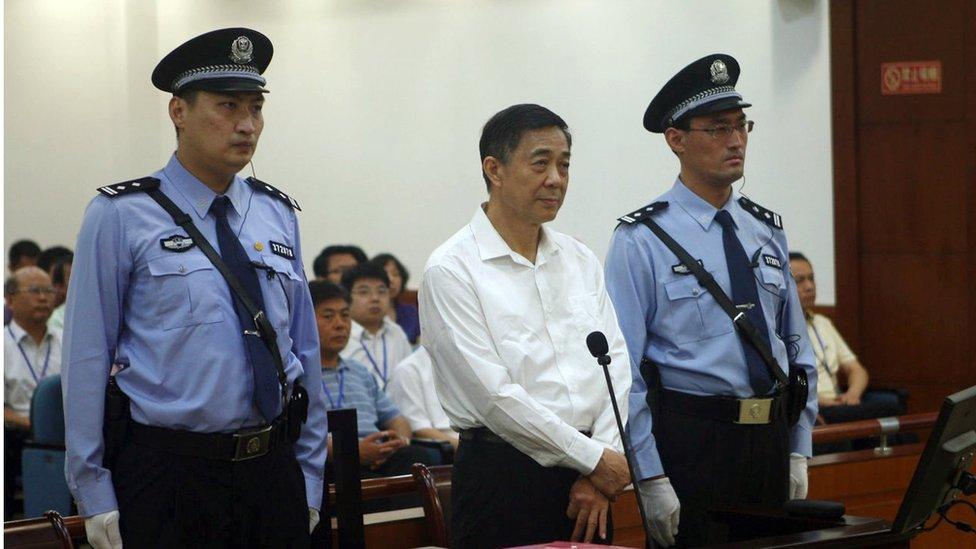
Bo Xilai (centre) is long gone but the consequences of his ousting are still being felt
The most charismatic Chinese politician of his generation was toppled from power at the end of an NPC session exactly five years ago and currently languishes in a jail north of Beijing, serving a life sentence for corruption and abuse of power after the murder of a British businessman and the sensational show trials which followed.
The disgrace of the Chongqing party secretary marked the last great highpoint in the Chinese political cycle, and the savage purge of "corrupt tigers" which ensued cleared China's stage for the strongman politics we see today.
All of which takes us back to the beginning: President Xi is up.
And as the president puts a smooth NPC behind him and moves on to prepare for the much more important party congress in the autumn, his remaining enemies must tremble at the prospect of his second term in power.
For more on the intrigue that led to Bo Xilai's downfall, listen to the podcast from the BBC's China Editor Carrie Gracie: Murder at the Lucky Holiday Hotel.
- Published29 October 2016
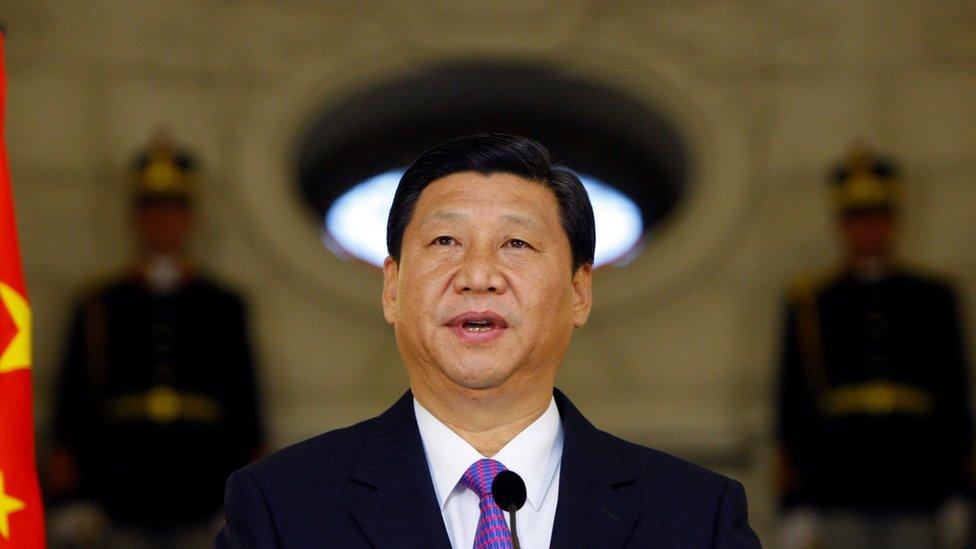
- Published2 March 2017
- Published24 February 2017